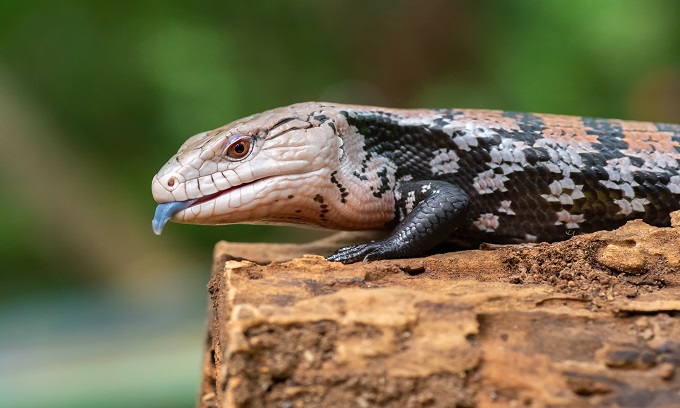KEY POINTS
- Due to the specialised nature of exotic pet insurance, the policies offered usually provide more comprehensive coverage, but policy options may be limited.
- Exotic pet insurance in Australia is generally more expensive than pet insurance for regular domesticated animals.
- Not all pet insurance providers offer exotic pet insurance.
What is an exotic pet?
Exotic pets are usually defined as animals which are not traditionally kept as household pets like dogs or cats. While the term ‘exotic’ may suggest pets not native to Australia, many exotic pets are in fact native Australian species. Some examples of exotic pets as listed by Petcover are bearded dragons, skinks, geckos, turtles, macaws, cockatoos, ferrets and rats.
But what happens if your exotic pet becomes sick or injured? Just like regular domesticated pets, you may be able to get pet insurance in order to help cover your vet bills (up to a certain set percentage).
Can you get pet insurance for exotic pets?
Yes, you can get pet insurance for exotic pets, however it will generally be more expensive than pet insurance for cats and dogs. It may also be more difficult to find a policy, as many providers do not offer exotic pet insurance products at all. The reason for this is that specialist veterinary care is often required for exotic animals and is often more expensive and difficult to find compared to regular veterinary services.
There are some insurance providers, such as Petcover, which offer cover for veterinary costs for exotic pets such as reptiles, turtles, birds and small mammals. It’s important to read the terms and conditions, which can be found in the Product Disclosure Statement (PDS), carefully to work out what your pet is covered for and whether any limits or exclusions apply.
Ultimately, how much value you get from the cover may depend on the health of your pet. Buying your pet from a reputable breeder may help to ensure it’s less prone to certain conditions, which may in turn lower your vet bills.
What’s included with exotic pet insurance in Australia?
If you take out an exotic pet insurance policy, you can generally expect the following things to be included:
- Veterinary fees: Due to the specialised nature of exotic pet insurance, most policies will be comprehensive and provide coverage for injury, accident and illness related vet bills up to a set limit.
- Alternative or complimentary treatment: This can provide coverage for your pet for the cost of examinations, consultation advice and prescribed medication or health services such as acupuncture, chiropractic manipulation, physiotherapy, herbal medicine, homeopathy, hydrotherapy and osteopathy as recommended by your vet.
- Advertising and reward: If your pet goes missing or is stolen, your policy may provide coverage for the cost of advertising, as well as the reward amount offered and paid to get your pet back.
- Third party liability: If your exotic pet causes damage to someone else’s property or injures or fatally wounds another person, you may be covered for related compensation and claimant’s costs, as well as your own legal expenses.
- Referral hospital or specialist vet: If your pet requires specialised treatment or hospitalisation and is referred by a primary vet, you can usually be covered for the cost up to a set amount.
- Diagnostic examinations: Diagnostic scans and imaging examinations for your pet such as MRIs, NMRIs, CT and CA scans may be covered up to a set amount.
- Loss from not returning whilst flying (birds of prey only): If you have a bird of prey (such as a hawk or falcon), you may be covered for the cost of your pet (up to a set amount) if they are proven missing whilst flying and are not recovered or do not return. You will usually have to fit your pet with telemetry tracking equipment in order to be covered.
It’s important to read your policy’s PDS in order to have a better understanding of what your exotic pet is and isn’t covered for and any annual limits or benefit percentages that may apply.
Are there any exclusions or limitations that apply to exotic pet insurance?
Like all pet insurance policies, exotic pet insurance will often have exclusions and limitations that apply to its coverage. Some of these are:
- Pre-existing conditions: Pet insurance policies will generally not cover health issues that your pet was diagnosed with before the policy’s start date.
- Annual limits and benefit percentage: Most pet insurance policies come with annual coverage limits up to a certain dollar amount, as well as a set percentage that you are reimbursed for when making eligible claims.
- Age limits: These limits are common in pet insurance, as older pets generally have more complex health issues and are therefore more expensive to provide care for. Some exotic pets live significantly longer than domestic pets, so it’s important to confirm with your insurer about how long your exotic pet will be covered for.
- Waiting periods: This refers to a set period of time that must pass before coverage for certain conditions or treatments will be eligible.
- Limited policy availability: As exotic pet insurance is a specified form of pet insurance, you may find that your policy options are limited.
How much does it cost to insure an exotic pet?
This will ultimately depend on your pet’s age, species, breed, size and gender, as well as the type of policy you decide to take out.
Due to exotic pets typically requiring specialised care, nutrition and medication, the premiums for such policies are usually higher than standard pet insurance. That’s why it can be important to shop around and get quotes from several exotic pet insurers to help ensure you are getting value for your money.



